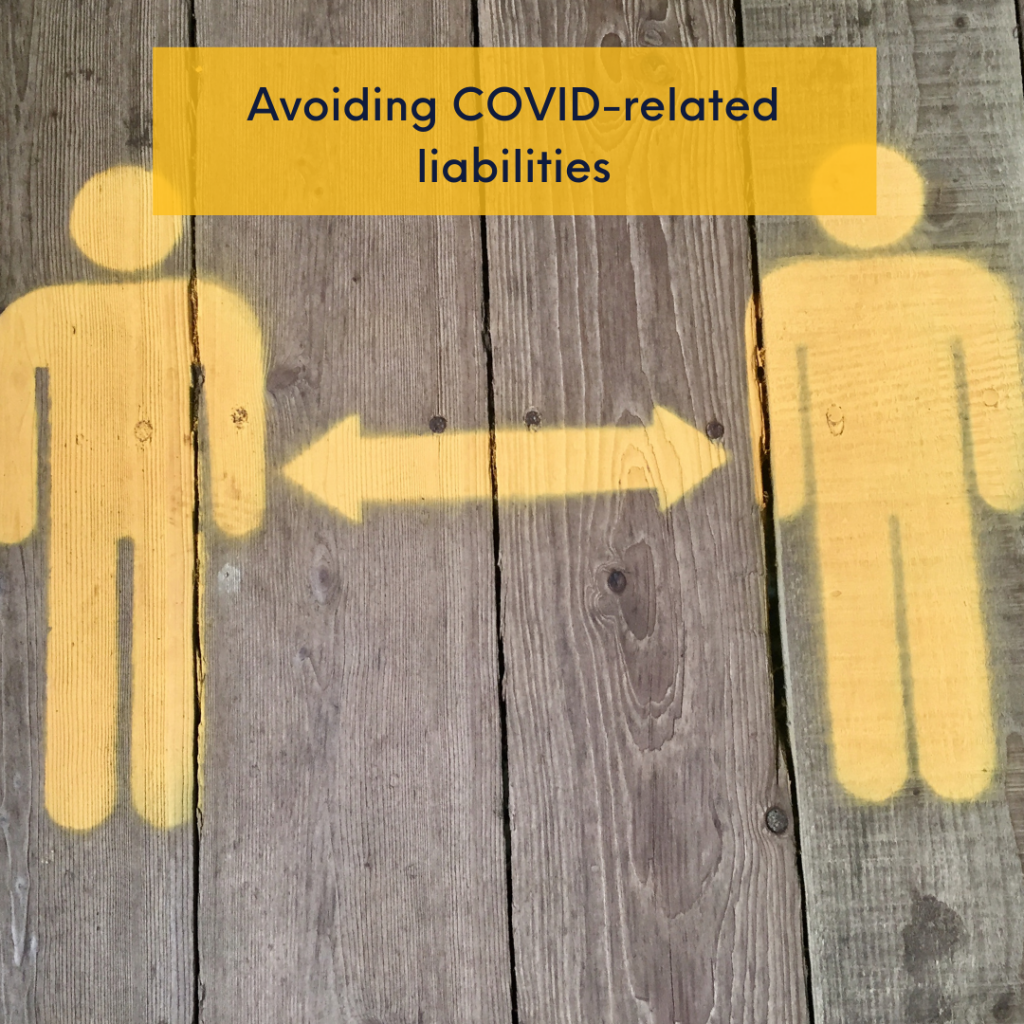
Published 19 October 2020, The Daily Tribune
In a span of eight months, the novel coronavirus (COVID-19) spread like wildfire in the world, indiscriminately affecting people from all walks of life. Out of approximately 39.7 million confirmed cases of COVID-19, more than one million succumbed to death. In the Philippines, there are now 354,000 confirmed cases of COVID-19 with a 6,603 death count. The World Health Organization (WHO) even declared the country as having the quickest rise in COVID-19 cases in the Western Pacific region.
In one way or another, during the quarantine period, one wondered on the legal liabilities, civil and criminal, of a COVID-19 positive person or at least a Patient Under Investigation (PUI) who unduly exposed another with the risk of contracting the virus. What if a carefree PUI or a COVID-19 positive refused to undergo quarantine? What if they simply caused annoyance by nonchalantly violating protocols set by the Department of Health (DOH)? What if a COVID-19 positive person caused the death of an immunocompromised person?
Under DOH Advisory 3 issued on 2 February 2020, in relation to DOH Administrative Order 2020-0012 on 17 March 2020, one is considered PUI if he/she has fever (equal to or more than 38 degrees Celsius) and/or respiratory illness and/or diarrhea, with any of the following: travel history in the last 14 days to countries with local transmission of COVID-19, or has exposure from a known confirmed COVID-19 case; with severe acute respiratory infection or atypical pneumonia and requiring hospitalization and with no other etiology to fully explain the clinical presentation, regardless of exposure history; or with severe acute respiratory infection or atypical pneumonia and residing or working where there is a clustering of influenza-like illness cases. On the other hand, one becomes a COVID-19 patient after a PUI confirms infection through a laboratory confirmation test, regardless of whether one is symptomatic or asymptomatic.
After WHO declared the COVID-19 health event as a public health emergency of international concern, DOH issued Administrative Order 2020-0012, including COVID-19 in the list of notifiable diseases in the country. This rendered operative the provisions of Republic Act 11332, otherwise known as the Mandatory Reporting of Notifiable Diseases and Health Events of Public Health Concern Act of 2019. Specifically, the law penalizes both the “non-cooperation of persons and entities that should report and/or respond to notifiable diseases or health events of public concern” and “non-cooperation of the person or entities identified as having the notifiable disease, or affected by the health event of public concern.” Hence, a COVID-19 positive and a PUI, considered as persons affected by the health event of public concern, must observe quarantine protocols and procedures imposed by DOH. Their breach of these protocols exposes them to a fine or imprisonment, or both fine and imprisonment, at the discretion of the proper court.
On top of this, a negligent PUI or a COVID-19 positive may be held liable for damages based on torts under Article 2176 of the New Civil Code. Their knowledge that they are PUI or COVID-19 positive imposes an obligation on their part to observe for the protection of the interest of another person that degree of care, precaution and vigilance, which the circumstances justly demand. Hence, if the circumstances demand the wearing of a mask, social distancing or undergoing quarantine, yet the PUI or a COVID-19 positive failed to fulfill these obligations and thereby proximately causing injury to another make them liable for damages. Aside from actual damages, the PUI or a COVID-19 positive may be held for moral damages for causing the person physical suffering, mental anguish and serious anxiety, and exemplary damages to deter the public from doing similar grossly negligent act in the time of pandemic.
Another crime which may be charged against a PUI or a COVID-19 positive who, despite knowing their conditions as such, indifferently breaches protocols like quarantine and social distancing is unjust vexation, as provided under Article 287 of the Revised Penal Code. Even if it turned out that no person contracted the virus in spite of their breaches to protocols, the crime would still lie since it punishes any human conduct which, although not capable of producing any harm or material injury, annoys or vexes innocent persons. Clearly, this crime is broad enough to include the act of exposing persons from the risk of contracting the virus — an act which would undoubtedly cause annoyance, irritation, torment, distress or disturbance to the mind of these persons.
Alternatively, should a PUI (who would later on test positive for the virus) or COVID-19 positive’s inexcusable lack of precaution be the cause why a person contracted the virus, which ultimately leads into his/her untimely demise, the crime of reckless imprudence resulting to homicide may be charged against them. The fact that the PUI or COVID-19 positive did not intend to cause the death of another would not be a valid defense since under Article 365 of the Revised Penal Code, what is being punished is the act of imprudence and negligence and not the death which resulted from it.
Now, more than ever, every person is obligated to observe a general duty of care to others. Persons who are positive or suspected of being positive for COVID-19 are demanded to do as the prudent man who refrains from doing an act which he foresees as the proximate cause of an injury.
Indeed, being careless has a price to pay.
For comments and questions, please send an email to cabdo@divinalaw.com.

